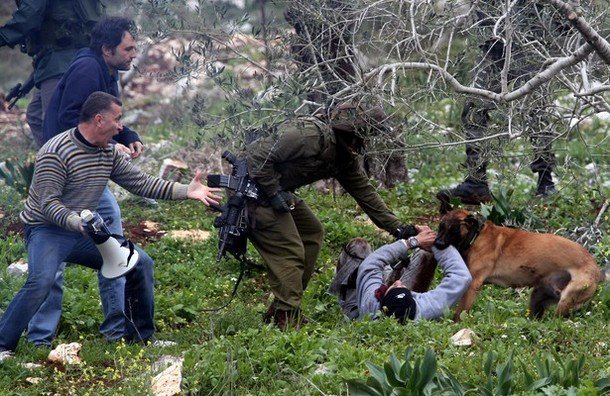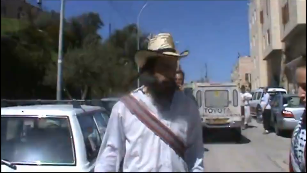Tag: Video
-
When teargas and rubber bullets are not enough: Israeli soldiers release the hounds on unarmed Palestinian protesters
17 March 2012 | Ni’lin Village In Kufur Qaddoum, clashes between Israeli Border Police officers who shot tear-gas projectiles and rubber-coated bullets and local youth who threw stones at the forces developed. Roughly 15 minutes later – in a scene that seemed as if it was taking place in the American South of the…
-
Official Release: “The New Black” by The Mavrix
13 March 2012 | Palestine Solidarity Alliance and PACBI In a first ever musical collaboration between South Africa and Palestine, South African band, The Mavrix, and Palestinian Oud player, Mohammed Omar, have released a music video called “The New Black”. The song is taken from The Mavrix’ upcoming album,”Pura Vida”, due for release in June 2012.…
-
Caught on Tape: Drunk settlers in Al Khalil assault two international women; Israeli military admits special relationship with violent settlers
11 March 2012 | International Solidarity Movement, West Bank On March 9 2012, 6 volunteers of International Solidarity Movement were walking down Shuhada Street near Checkpoint 55 at approximately 11 AM, when drunk settlers attacked the group and injured one international volunteer. About 5 drunk male settlers began to scream at and surround the internationals,…


